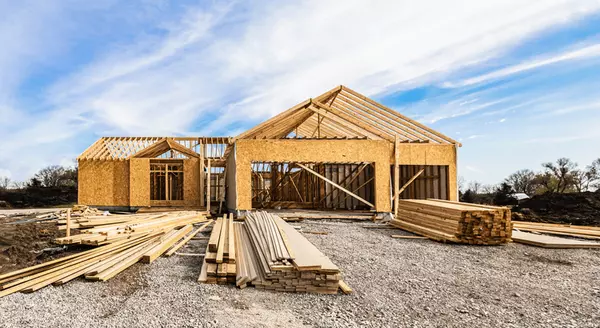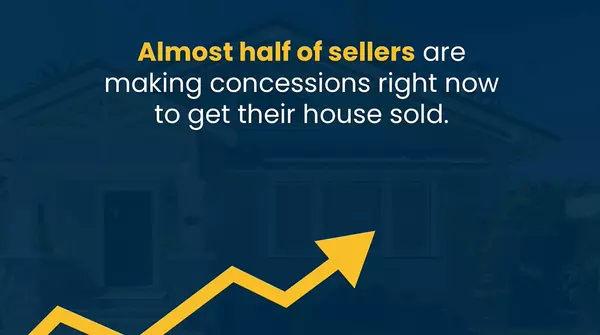Credit Matters: How to Build and Maintain a Strong Credit Score
Credit Matters: How to Build and Maintain a Strong Credit Score

Your credit score is one of the most important factors when it comes to buying a home. For young adults, understanding and improving your credit score is a crucial step toward achieving your homeownership goals. A strong credit score can mean better mortgage rates, lower monthly payments, and greater financial flexibility. Let’s explore how you can build and maintain a credit score that will open doors to your dream home.
Why Your Credit Score Matters
Lenders use your credit score to determine how likely you are to repay a loan. A higher score translates to:
-
Lower Interest Rates: A good credit score can save you thousands of dollars over the life of your mortgage.
-
Easier Approval: Strong credit minimizes barriers in the loan approval process.
-
Better Loan Terms: Higher credit scores often come with more favorable repayment terms and lower fees.
What Affects Your Credit Score? 
Your credit score is determined by several factors:
-
Payment History (35%): Consistently paying bills on time is the most significant factor.
-
Credit Utilization (30%): The amount of credit you use compared to your total credit limit. Keeping utilization below 30% is ideal.
-
Length of Credit History (15%): The longer your credit history, the better.
-
Credit Mix (10%): A combination of different types of credit, such as credit cards and loans, boosts your score.
-
New Credit Inquiries (10%): Too many applications for new credit can lower your score temporarily.
Steps to Build a Strong Credit Score
-
Understand Your Starting Point
-
Obtain a free copy of your credit report from AnnualCreditReport.com.
-
Review it for errors, such as incorrect account information or fraudulent activity, and dispute any inaccuracies.
-
-
Pay Your Bills on Time
-
Set up automatic payments or reminders to avoid missed due dates.
-
Late payments can significantly harm your credit score, so make this a top priority.
-
-
Lower Your Credit Utilization
-
Aim to use no more than 30% of your available credit.
-
If possible, pay off your balance in full each month.
-
Request a credit limit increase if you’re using a significant portion of your credit but can manage the additional responsibility.
-
-
Start Small and Build
-
Open a secured credit card if you’re just starting out. These cards require a deposit and help you build credit responsibly.
-
Use the card for small purchases and pay it off in full each month.
-
-
Keep Old Accounts Open
-
Even if you no longer use an account, keeping it open can positively impact your credit history length.
-
Closing old accounts may reduce your total available credit, increasing your utilization rate.
-
-
Diversify Your Credit
-
If you have only one type of credit, consider adding another, like a small personal loan or retail card.
-
Only take on debt you can manage to avoid negative impacts.
-
-
Minimize Hard Inquiries
-
Avoid applying for multiple credit cards or loans in a short period.
-
Soft inquiries, like checking your own credit, do not affect your score.
-
-
Become an Authorized User
-
Ask a family member with good credit to add you as an authorized user on their credit card.
-
This can help boost your score, but ensure the primary user maintains good credit habits.
-
Maintaining Your Credit Score
-
Monitor Regularly: Use credit monitoring tools to keep track of changes and stay alert to potential fraud.
-
Avoid Over-Borrowing: Stick to your budget and resist the temptation to take on unnecessary debt.
-
Plan Ahead: Before applying for a mortgage, avoid major financial changes that could impact your credit, like opening new accounts or making large purchases.
Final Thoughts
Building and maintaining a strong credit score takes time and consistent effort, but it’s worth it. A good credit score not only helps you qualify for a mortgage but also lays the foundation for a solid financial future. Start today, and you’ll be one step closer to opening the door to your first home.
Categories
- All Blogs (430)
- For Sale By Owner (15)
- Local Events (6)
- Affordability (24)
- Agent Value (86)
- Buying Tips (178)
- Design (8)
- Downsize (3)
- Economy (19)
- Equity (21)
- Financial Planning (32)
- First-Time Home Buyer (123)
- For Sale by Owner (2)
- Forecasts (13)
- Foreclosures (3)
- Fun Tips (5)
- Home Buying (217)
- Home Prices (55)
- Home Selling (157)
- Inventory (33)
- Local (24)
- Luxury / Vacation (1)
- Market Update (35)
- Mortgage (43)
- Move-Up (1)
- New Construction (5)
- Newsletter (8)
- Open House (1)
- Real Estate Investing (7)
- Rent vs Buy (8)
- Restaurant Reviews (5)
- Seasonal (11)
- selling tips (118)
- Technology (1)
- Teens & Young Adults (11)
- Trends (15)
- Wealth Building (12)
Recent Posts










